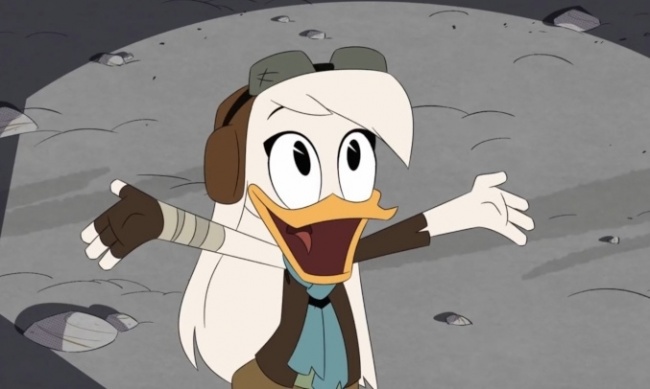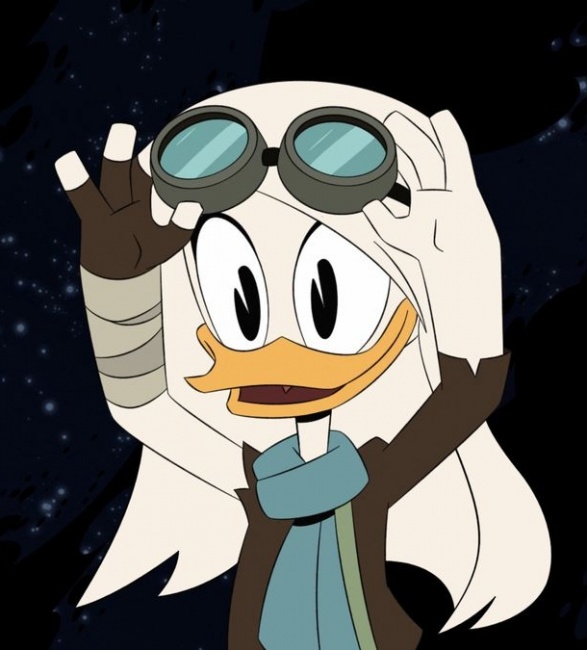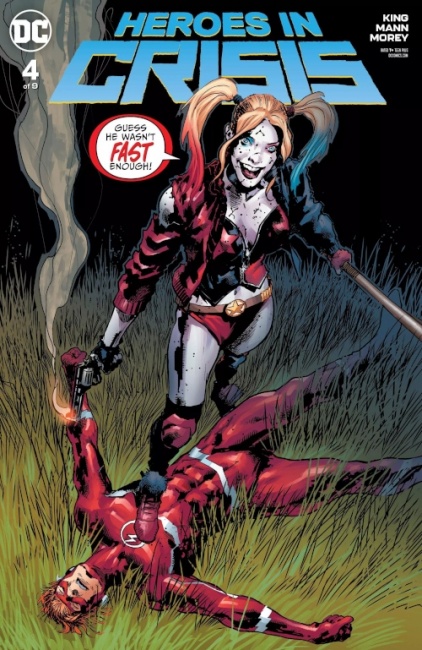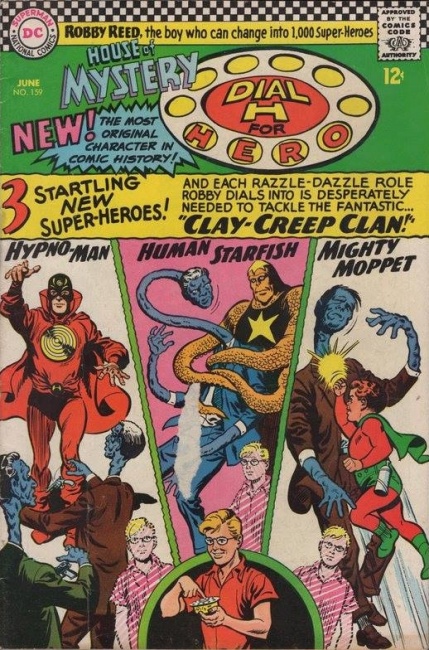Confessions of a Comic Book Guy is a weekly column by Steve Bennett of Super-Fly Comics and Games in Yellow Springs, Ohio. This week, Bennett notes a new barrier breached in animated television, and choses the Most Miserable Superhero Comics.
Last year (see "Confessions of a Comic Book Guy - Disney's Next Breakout Star") I wrote about how on the reboot of DuckTales there had been a season-long mystery concerning the whereabouts of Della Duck (twin sister of Donald and mother of Huey, Dewey, and Louie). On the finale, we learn that Della had been marooned on the moon. And in a new episode which aired last Saturday on Disney Channel ("Whatever Happened to Della Duck?"), it was revealed that after her ship crashed on the lunar surface she had lost a leg. Which is, I have to confess, not something I thought would ever happen to a Disney duck.
Of course there have been other Disney characters with artificial limbs, but they've all been villains like Peter Pan's Captain Hook and the cyborg John Silver in the animated feature Treasure Planet. And in the Mickey Mouse comic strip his arch-nemesis Pete was once known as Peg Leg Pete due to his wooden pirate style prosthesis. Pete lost the peg in 1941 and ever since has been presumed to have retained all of his limbs.
Until relatively recently prosthetics primarily have had a sinister association in popular culture and been treated as being abnormal, even dangerous, the province of super villain henchmen and the subject of horror movies. Or just considered to be outside the norm, an unpleasant or impolite subject best left undealt with, and amputees people to be pitied. Or when dealt with positively, amputees have been heroic returning servicemen who have overcome tragedy or even superheroes (The Six Million Dollar Man, etc. Amputees were rarely if ever allowed the privilege of being just people.
Which is what makes this so unusual, and important. According to a widely circulated Associated Press story (it even made the New York Times) Della Duck, intrepid space explorer and amputee, comes to TV, she’s "one of the few TV characters with a disability who’s part of a children’s series." Francisco (Frank) Angones, co-producer and story editor of DuckTales is quoted as saying “We got really excited about the opportunity to show an aspirational version of a character that has a prosthetic and that isn’t entirely defined by her prosthetic."
Jack Richmond, president of the Amputee Coalition, "assisted in Della’s creation" and "advised the series on elements including an authentic gait for Della and her can-do attitude, which he said reflects that of a determined friend who quickly adapted to becoming an amputee."
And Jay Ruderman, president of the Ruderman Family Foundation, which advocates for inclusion for people with disabilities, is quoted as saying "If you are a child with a disability, you almost never see yourself (portrayed) in popular entertainment." And there is "so much stigma of people with disabilities being different" but "positive portrayals on TV and in movies "can really change attitudes."
Happily, at least so far I haven't come across pushback from the usual suspect set declaring something like this to be unneeded or unwanted, or worse still, "diversity run amuck." Because things like this hurt no one and can do immeasurable good for many; if they make some uncomfortable, I can live with that.
Comics by necessity have to reflect reality, which might explain why, with the exception of the current output of Brian Bendis, so many DC Comics are so sour, dour and dismal. They're certainly representative of these terrible times we find ourselves living in, but it does sometimes seem like DC is having some kind of contest to see just how dark they can make their comics before their characters begin bumping into the furniture. Right now the top contenders for the title of Most Miserable Superhero Comic are Heroes in Crisis and Doomsday Clock.
Being written by Tom King, I’m fairly confident that Heroes in Crisis, which is supposed to be about human suffering, is building to, well, something substantial. This, however, is not the case with Doomsday Clock, an unnecessary, intentionally ugly retelling of Watchmen with DC superheroes, but I found that I was actually entertained by #9, for about six seconds anyway. Because buried in a couple of crowded panels there were very brief appearances by Flex Mentallo and Human Starfish. For those unfamiliar with the latter, he was one of the weird superheroes that Robby Reed dialed up in the original Dial H For Hero series that ran in House of Mystery back in the 1960s. I assumed his inclusion here was due to DC doing a Dial H For Hero revival for Wonder Comics, but he’s so obscure, and his presence so incongruous, I wasn’t sure it really was him at first. At least not until a couple of pages later when someone refers to him as "Robby."
And almost as good as seeing Human Starfish again was "Puppet Patrol," the third episode of DC Universe's Doom Patrol TV series which gave old fans like me the pleasure of seeing a cameo by one of the DP's strangest villains; the Animal-Vegetable-Mineral Man. I had been wondering how they were going to execute him in live-action; now I know. I thought he'd be taller.
On February 26 Late Night With Seth Meyers had two guests with comic book connections. First out was comedian/actor Patton Oswalt, who talked about his upcoming Hulu series Marvel's M.O.D.O.K. Oswalt also called Grant Morrison a "lunatic" (though he seemed to mean it as a compliment), and he should know; he voices the title character in the Syfy adaptation of Morrison's Happy! Up next was talented Saturday Night Live cast member Heidi Gardner who admitted to having been into Archie Comics growing up and being married to a comic book writer. She didn't say which one, but later I looked it up online and found it's Zeb Wells, best known for his work for Marvel.
The opinions expressed in this column are solely those of the writer, and do not necessarily reflect the views of the editorial staff of ICv2.com.

Column By Steve Bennett
Posted by Steve Bennett on March 14, 2019 @ 12:46 pm CT





